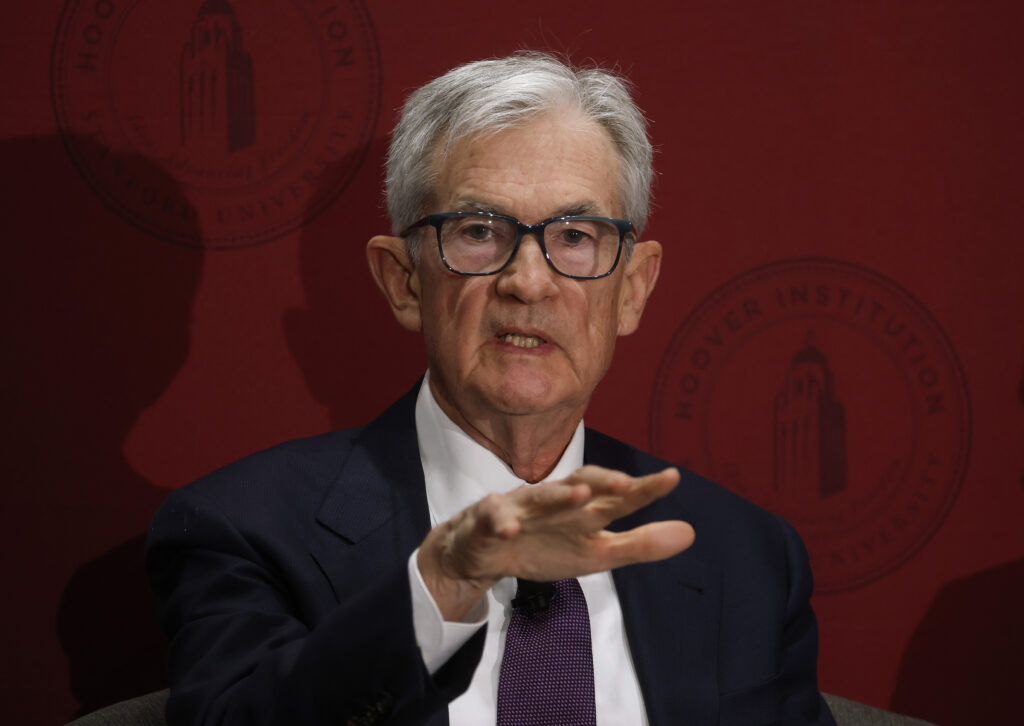Sri Lanka issues landslide warnings as cyclone toll hits 618
Sri Lankan authorities issued fresh landslide warnings on Sunday with rains lashing areas already devastated by a powerful cyclone, as the death toll rose to 618.More than two million people — nearly 10 percent of the population — have been affected by last week’s floods and landslides triggered by Cyclone Ditwah, the worst on the island this century.The Disaster Management Centre (DMC) said monsoon storms were adding more rain and making hillsides unstable, including the central mountainous region and the north-western midlands.Helicopters and planes were being used on Sunday to supply communities cut off by landslides in the centre of the country.The Sri Lanka Air Force said it had received a planeload of relief supplies from Myanmar on Sunday, the latest batch of foreign aid.The government has confirmed 618 dead — 464 from the lush tea-growing central region — while 209 people remain unaccounted for.The number of people in state-run refugee camps had dropped to 100,000 from a peak of 225,000 as floodwaters receded across the island by Sunday, the DMC said.More than 75,000 homes were damaged, including close to 5,000 that were completely destroyed, it added.The government on Friday unveiled a major compensation package to rebuild homes and revive businesses wiped out by the natural disaster, which hit the island as it was emerging from its 2022 economic meltdown.A senior official earlier said recovery and reconstruction might cost up to $7 billion.The International Monetary Fund (IMF) said on Friday it was considering Sri Lanka’s request for an additional $200 million to help with rebuilding.The money is on top of the $347 million tranche due later this month, part of a four-year, $2.9 billion IMF bailout loan agreed in 2023.President Anura Kumara Dissanayake told parliament on Friday that Sri Lanka’s economy had made a significant recovery, but was not strong enough to withstand the latest shock alone.Survivors will be offered up to 10 million rupees ($33,000) to buy land in a safer location and build a new house, the finance ministry said in a statement late on Friday.One million rupees is being offered in compensation for each person killed or left permanently disabled.The government did not say how much the package would cost, raising concerns given the country’s recent economic turbulence.The central bank has ordered commercial lenders, both state-owned and private, to reschedule loans.
Inde: au moins 25 personnes, dont des touristes, meurent dans l’incendie d’une boîte de nuit à Goa
Au moins 25 personnes, dont des touristes, sont mortes dans l’incendie d’une boîte de nuit très fréquentée de la célèbre station balnéaire de Goa, dans l’ouest de l’Inde, ont annoncé dimanche matin les autorités de cette ancienne colonie portugaise.Le feu s’est déclaré dans la nuit de samedi à dimanche, après minuit, dans une discothèque qui fait partie d’un hôtel à Arpora, dans l’arrondissement de Goa Nord, avait indiqué à l’aube la police locale citée par l’agence Press Trust of India (PTI).Le Premier ministre indien Narendra Modi s’est dit dans un communiqué “profondément attristé”. Le ministre en chef de l’exécutif local, Pramod Sawant, a déploré auparavant sur son compte X “un jour très douloureux pour nous tous à Goa”, précisant que “25 personnes avaient perdu la vie et six avaient été blessées”.Ce responsable a précisé que “le personnel de l’hôtel et trois ou quatre touristes étaient morts asphyxiés”. Il n’a donné aucun détail sur la nationalité des victimes, indienne ou de pays étrangers.Des images de PTI, reprises par l’AFPTV, ont montré des secouristes évacuer sur des brancards des blessés ou des morts, en descendant en pleine nuit un escalier étroit en pierre de l’établissement “Birch” devant lequel on voit policiers, secouristes, ambulanciers et badauds se presser.Sur d’autres plans larges, beaucoup de fumée s’échappe du lieu du sinistre.Le ministre Sawant a assuré avoir “ordonné une enquête” d’ampleur en s’engageant à ce que “les responsables soient soumis aux sanctions les plus sévères prévues par la loi”.D’après lui, ce “tragique accident n’aurait jamais dû se produire” car “l’établissement fonctionnait sans autorisation en bonne et due forme et cette négligence a provoqué l’incendie”.- Explosion de gaz ou spectacle pyrotechnique -Des médias locaux, s’appuyant sur leurs sources policières, ont laissé entendre que l’incendie sinistre avait pu être déclenché par une “explosion d’une bonbonne” de gaz.Le chef des pompiers de Goa, Nitin V. Raiker, a expliqué pour sa part sur la télé locale CNN News18 que “la plupart des gens étaient morts asphyxiés dans le sous-sol et la cuisine” après qu'”un spectacle pyrotechnique eut embrasé des parties en bois de la boîte de nuit, dégageant de la fumée dans tout l’établissement”.Goa, ancienne colonie portugaise (1510-1961) posée au bord de la mer d’Arabie, partie de l’océan Indien séparant le sous-continent indien de la péninsule arabique, est une station balnéaire réputée dans le monde.Elle est fréquentée par des touristes indiens, asiatiques, occidentaux et russes, attirés par ses plages, ses lieux de divertissement et son riche patrimoine architectural colonial.Goa a reçu plus de dix millions de touristes en 2024, dont près de 470.000 étrangers, selon des statistiques officielles.Les incendies en Inde sont fréquents, en raison d’infrastructures parfois en piteux état et de normes de sécurité et d’évacuation pas toujours appliquées, ni respectées. En mai dernier, 17 personnes avaient péri dans l’incendie d’un immeuble de la ville de l’informatique et de la tech, Hyderabad (sud).Un mois plus tôt, ce sont 15 autres personnes qui avaient perdu la vie dans un hôtel de Calcutta (est) en flammes en tentant de sauter par les fenêtres.burs-nr/roc
India nightclub fire kills 25 in Goa
A fire that ripped through an Indian nightclub in the popular tourist resort region of Goa killed 25 people, the state’s chief minister said Sunday.Tourists were among the dead in the blaze, which broke out at about midnight at a club in Arpora in the north of the coastal state. Prime Minister Narendra Modi said in a statement that the deaths were “deeply saddening”.Goa, a former Portuguese colony on the shores of the Arabian Sea, lures millions of tourists every year with its nightlife, sandy beaches and laid-back coastal atmosphere.”Today is a very painful day for all of us,” Goa Chief Minister Pramod Sawant said in a statement, saying that “25 people have lost their lives and six have been injured.”Sawant told journalists that “three to four” tourists had died, without giving their nationalities.”I have ordered a magisterial inquiry into the entire incident to identify the cause and fix responsibility,” Sawant added.- ‘Fire show’ -Video images from the Press Trust of India news agency showed rescuers carrying the injured or dead on stretchers down the narrow stone staircase of the Birch nightclub.”Most people died due to suffocation in the basement and kitchen area,” Nitin V. Raiker, Goa’s fire chief, told Indian broadcaster CNN News18.”I received information that there was a club party going on, and a fire show was organised in the club. The wooden parts of the club caught fire, and smoke spread throughout the building.”Fires are common in India due to poor building practices, overcrowding and a lack of adherence to safety regulations.In May, at least 17 people died after a fire ripped through a three-storey building in the Indian city of Hyderabad.A month before that, a fierce blaze broke out in a hotel in Kolkata, killing at least 15 people. Some people clambered out of windows and onto the rooftop to escape.And last year, at least 24 people died after a fire broke out at a packed amusement park arcade in the western state of Gujarat.
Inde: au moins 23 personnes, dont des touristes, meurent dans l’incendie d’une boîte de nuit à Goa
Au moins 23 personnes, dont plusieurs touristes, sont mortes dans l’incendie d’une boîte de nuit très fréquentée de la célèbre station balnéaire de Goa, dans l’ouest de l’Inde, ont annoncé dimanche matin de hauts responsables de cette ancienne colonie portugaise.Le feu s’est déclaré dans la nuit de samedi à dimanche, après minuit, dans une discothèque qui fait partie d’un hôtel à d’Arpora, dans l’arrondissement de Goa Nord, a précisé la police citée par l’agence Press Trust of India (PTI).”Aujourd’hui est un jour très douloureux pour nous tous à Goa. Un incendie majeur à Arpora a coûté la vie à 23 personnes”, a écrit le ministre en chef de l’exécutif local, Pramod Sawant, sur son compte X.Ce haut responsable a précisé que “le personnel de l’hôtel et trois ou quatre touristes étaient morts asphyxiés”.Il n’a donné aucun détail sur d’éventuels blessés, ni sur la nationalité des victimes, indienne ou de pays étrangers.”Je me suis rendu sur les lieux et j’ai ordonné une enquête”, a déclaré M. Sawant, promettant que “les responsables seront soumis aux sanctions les plus sévères prévues par la loi”.D’après lui, ce “tragique accident n’aurait jamais dû se produire” car “l’établissement fonctionnait sans autorisation en bonne et due forme et cette négligence a provoqué l’incendie”.- Possible explosion -Des images de PTI, reprises par l’AFPTV, montrent des secouristes évacuer sur des brancards des blessés ou des morts, en descendant en pleine nuit un escalier étroit en pierre de l’établissement “Birch” devant lequel policiers, secouristes, ambulanciers et badauds se pressent.Des médias locaux, s’appuyant sur leurs sources policières, ont laissé entendre que le sinistre avait pu être provoqué par une “explosion d’une bonbonne” de gaz, tout en ajoutant que l’enquête n’en était qu’à ses débuts.D’autres images en plan large montrent de la fumée s’échapper du lieu du sinistre.Goa, ancienne colonie portugaise (1510-1961) posée au bord de la mer d’Arabie, partie de l’océan Indien séparant le sous-continent indien de la péninsule arabique, est une station balnéaire réputée dans le monde.Elle est fréquentée par des touristes indiens, asiatiques, occidentaux et russes, attirés par ses plages, ses lieux de divertissement et son riche patrimoine architectural colonial.Goa a reçu plus de dix millions de touristes en 2024, dont près de 470.000 étrangers, selon des statistiques officielles.Les incendies en Inde sont fréquents, en raison d’infrastructures parfois en piteux état et de normes de sécurité et d’évacuation pas toujours appliquées, ni respectées. En mai dernier, 17 personnes avaient péri dans l’incendie d’un immeuble de la ville de l’informatique et de la tech, Hyderabad (sud).Un mois plus tôt, ce sont 15 autres personnes qui avaient perdu la vie dans un hôtel de Calcutta (est) en flammes en tentant de sauter par les fenêtres.burs-nr/roc
Number’s up: Calculators hold out against AI
The humble pocket calculator may not be able to keep up with the mathematical capabilities of new technology, but it will never hallucinate.The device’s enduring reliability equates to millions of sales each year for Japan’s Casio, which is even eyeing expansion in certain regions.Despite lightning-speed advances in artificial intelligence, chatbots still sometimes stumble on basic addition.In contrast, “calculators always give the correct answer,” Casio executive Tomoaki Sato told AFP.But he conceded that calculators could one day go the way of the abacus.”It’s undeniable that the market for personal calculators used in business is on a downward trend,” Sato said in Tokyo.Smartphones and web browsers can handle everyday sums, while AI models achieved gold-level scores for the first time this year at a prestigious global maths contest.But calculators are more affordable than phones, and run on batteries and solar power — a plus for schools in developing countries, a potential growth area for Casio, Sato said.And people who do buy calculators prefer the way they feel, he argued.Thitinan Suntisubpool, co-owner of a shop selling red bags and beckoning cats in Bangkok’s Chinatown, said she loves how durable her big calculator is, having dropped it several times.”It’s more convenient in many ways,” the 58-year-old told AFP.”We can use it to press the numbers and show the customer,” avoiding language-barrier misunderstandings.But at a nearby street stall selling clocks, torches and calculators, the vendor, who gave her name as Da, said calculator sales were “quiet”.- ‘Optimised tools’ -At a Casio factory in Thailand, assembly line workers slotted green circuit boards into place and popped cuboid buttons labelled “DEL” from a plastic tub onto pastel-blue calculator frames.”Calculators are still in demand,” said Ryohei Saito, a general manager for Casio in Thailand.”Not everywhere in the world has smartphone connectivity, and calculators are optimised tools focused on necessary functions,” he said.In the year to March 2025, Casio sold 39 million calculators, general and scientific, in around 100 countries.That compares to 45 million in 2019-20, but is still up from the 31 million that sold the following year after the Covid-19 pandemic hit.The company has come a long way from the 1957 invention of the desk-sized “14-A”, which it says was the first compact all-electric calculator.Calculator history even made headlines recently when Christie’s suspended the Paris sale of an early calculating machine, “La Pascaline”, after a court said it could not be taken abroad.The auction house called the ebony-decorated 1642 device “the first attempt in history to substitute the human mind with a machine”.Those attempts have accelerated with AI.- Scoring gold -In July, AI models made by Google, OpenAI and DeepSeek reached gold-level scores at the annual International Mathematical Olympiad (IMO).But neither attained full marks at the annual contest for under-20s, unlike five human participants who achieved perfect scores.IMO president Gregor Dolinar called the progress of artificial intelligence in the field “fascinating”.”When we talk about scientific calculators, in the past you needed them, but nowadays it’s easier to just ask AI,” he told AFP.”If you pose the question in the right way,” artificial intelligence can crunch abstract, logical questions and show how it reached its conclusion, Dolinar said.Dolinar, a professor in engineering at the University of Ljubljana, thinks physical calculators are likely to “slowly disappear”.Something that has already happened for his students.”They can calculate everything on a phone,” he said.
Bethléem s’illumine et retrouve un peu de joie à l’approche de Noël
Bethléem a retrouvé un peu de joie samedi soir. Le traditionnel spectacle des illuminations de la ville de naissance de Jésus à l’approche de Noël a été inauguré en grande pompe après deux années d’annulation du fait de la guerre à Gaza.En présence du maire de la ville Nicola Canawati, et de représentants de diverses …
Bethléem s’illumine et retrouve un peu de joie à l’approche de Noël Read More »
Hinaupoko Devèze, Miss Tahiti, élue Miss France 2026
La Miss Tahiti, Hinaupoko Devèze, a été couronnée Miss France 2026 dans la nuit de samedi à dimanche lors d’une cérémonie organisée au Zénith d’Amiens et retransmise en direct sur TF1. Diplômée en psychologie, la jeune femme de 23 ans a été choisie parmi les 30 prétendantes par un vote combinant jury et public. Elle devance …
Hinaupoko Devèze, Miss Tahiti, élue Miss France 2026 Read More »
Divided US Fed set for contentious interest rate meeting
While the US Federal Reserve’s final interest rate meeting this year could see an unusual amount of division, financial markets view a third straight interest rate cut as nearly certain.When the Fed last met in October, Chair Jerome Powell asserted that another rate cut in December was “not a foregone conclusion,” pointing to “strongly differing views” within the central bank.Minutes from the Fed’s most recent meeting showed many officials expect a further uptick in underlying goods inflation as President Donald Trump’s tariffs bite.But recent comments from leading Fed officials also reflected support for cutting again because of a weakening labor market, even though inflation is still above the Fed’s two percent target.Next week’s outcome in the “deeply divided” Fed was “too close to call,” UniCredit said, also acknowledging that favorable comments from New York Fed bank chief John Williams towards a cut were a notable “intervention.””As one of the most senior members of the (Fed committee), it seems unlikely Williams would have said this without Powell’s prior approval,” UniCredit said.Policymakers generally hold rates at a higher level to tamp down price increases, but a rapidly deteriorating jobs market could nudge them to slash rates further to boost the economy.”Usually, as you get closer to a policy meeting, it becomes quite apparent and transparent what the Federal Open Market Committee is going to do,” said Nationwide Chief Economist Kathy Bostjancic, referring to the Fed’s rate-setting committee.”This time is very different,” she told AFP late last month.Financial markets rallied following Williams’ statement on November 21 that rates could go lower in the “near term.”Futures markets currently show more than 87 percent odds that the Fed will cut rates to between 3.50 percent and 3.75 percent, according to CME FedWatch.- Dearth of data -The Fed moved into rate cutting mode this fall, with rate cuts both in September and October.But a government shutdown from October 1 through November 12 sapped the central bank of most of the key data points for assessing whether inflation or employment is now the bigger priority.The latest available government data showed the jobless rate crept up from 4.3 percent to 4.4 percent in September, even as hiring beat expectations.While delayed publications on September’s economic conditions have trickled out, the US government has canceled full releases of October jobs and consumer inflation figures because the shutdown hit data collection.Instead, available figures will be published with November’s reports, but only after the Fed’s upcoming rate meeting.The US personal consumption expenditures price index rose to 2.8 percent on an annual basis in September, from 2.7 percent in August, according to delayed data released on Friday.The “Fed faces a bit of a paradoxical situation,” said EY-Parthenon Chief Economist Gregory Daco. “The Fed says these decisions will be data-dependent, but there isn’t a lot of data to go on.”Daco expects a “weak majority” to favor another interest rate cut, but believes there could be multiple dissents.- Looking beyond Powell -Besides Wednesday’s decision, the Fed will also release projections for its 2026 economic and monetary policy outlook.Next year will already mark a period of significant change with the conclusion of Powell’s tenure as chair in May.Trump, who has relentlessly criticized Powell for not cutting rates more aggressively, signaled this week that his chief economic adviser Kevin Hassett could succeed Powell.Hassett has appeared to be in lockstep with Trump on key economic questions facing the Fed. But if appointed, Hassett could also face pressure from financial markets to buck the White House on interest rates if inflation worsens.”The institutional constraints often end up leading appointees towards some level of political independence,” said Daco, noting decisions require a board majority.Whomever Trump picks will need to be confirmed in the US Senate.While UniCredit predicted “political interference will have a modest impact on Fed policy,” deeper consequences cannot be ruled out.”We have not assumed Trump will get de-facto control of the Fed,” UniCredit said, adding that such an outcome is “a non-negligible risk.”






